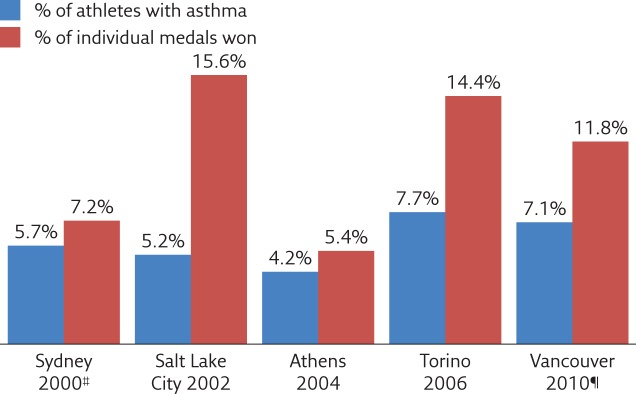Olympic Medals? Athletes With Asthma Are Among The Top Recipients
Further reason to not let asthma sideline you from goals to reach the peak of performance in your sport, or to keep anybody from participating in sport or physical activity—competitively or non-competitively. The World Anti-Doping Agency, who is in charge of ensuring sport is fair, clean, and safe by testing athletes for banned substances in competition and dealing with Therapeutic Use Exemptions (which is how they gather the data regarding which athletes are diagnosed with asthma and take medications learn more anti-doping protocols for athletes with asthma), recently shared some interesting data: athletes with asthma have “consistently outperformed” athletes without asthma, and have earned a higher number of Olympic medals.1
With the Olympic and Paralympic Games recently concluded, I read this and immediately thought Suck it, asthma! Not only can people with asthma be strong competitors—the strongest competitors—we now have an interesting set of data as more solid proof of this fact. 2016 research by Ken Fitch2, includes this graph that I found interesting, comparing the percentage of athletes with asthma at the Sydney 2000 (Summer), Salt Lake City 2002 (Winter), Athens 2004 (Summer), Torino 2006 (Winter) and Vancouver 2010 (Winter) Olympic Games, and the percentage of overall medals won. In the case of Winter sport competition specifically, a higher proportion among the group of athletes with asthma were medalists. Note, of course, that this applies for individual rather than team sports.

Join the conversation